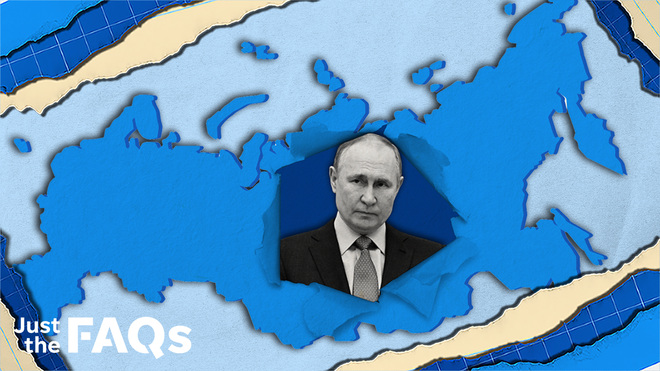- Experts say Putin’s “militarized masculinity” can have violent, global consequences.
- Men like Putin refuse to show vulnerability, making them difficult to negotiate with.
- People should reject “this cult of male force and thinking that’s good in our leaders,” experts say.
Russian President Vladimir Putin frequently engages in hypermasculine performances of power: Riding bare-chested on horseback through Southern Siberia, quoting song lyrics about rape in his criticism of Ukrainian President Volodymyr Zelensky, hosting talks with staff and foreign dignitaries from the end of one ludicrously long desk.
The global leader’s machismo has been satirized by some western media, but experts on authoritarianism and masculinity say Russia’s invasion of neighboring Ukraine shows how ideas about gender can shape not only interpersonal conflicts but also state ones. Putin’s brand of manhood – the unrestrained power and dominance found in many authoritarian regimes around the globe – can have violent, deadly and global consequences.




